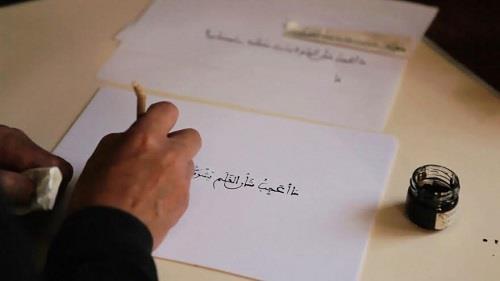Andalusi Calligraphy & Stories of Andalusi Muslims

Andalusi script, said to be Europe’s only indigenous way of writing the Holy Qur’an, is a style that is at once arrestingly beautiful and astonishingly easy to pick up.
This latter feature was what made it the vehicle for the production of literally millions of copies of books in al-Andalus, from works on the Islamic sciences to botany, medicine, astronomy, poetry, chemistry, agriculture and much more. This was in turn the catalyst for the Enlightenment in Europe, opening the doors of knowledge to all.
But with the fall of Al-Andalus in 1492, and the abolition of Arabic in Spain shortly after, this script had to go underground, with documents hidden in false walls, or into the diaspora, reaching places as far afield as Morocco, Turkey and even Mali.
Cut off from its native Spain, however, it gradually fell into disuse - until the modern era, when calligraphers, many of them Western-born, recognized the value of this bridge between East and West and began to revive it.
From the history of the script to the techniques and materials involved, this is the story of how something as simple as pen and paper can transform the lives of individuals and societies at the broadest level, preserving and conveying that most valuable of treasures: knowledge.
To do this unsung script justice, a new multimedia label called Barzakh is seeking to tell its story, and the story of the Andalusi Muslims it worked so hard for, through a documentary film set in Andalusia itself. Narrated by experts in the fields of Spanish Islam, art and history, it will also follow one modern-day practitioner of this script who will show us the bold, simple elegance of the script in real time.
In a world where Islam is increasingly portrayed negatively in mass media, it is of vital importance that we revisit the times when Muslims defined sophisticated society, and create high quality visual media in our own voices that balances out the stereotyping.
Source: On Islam



